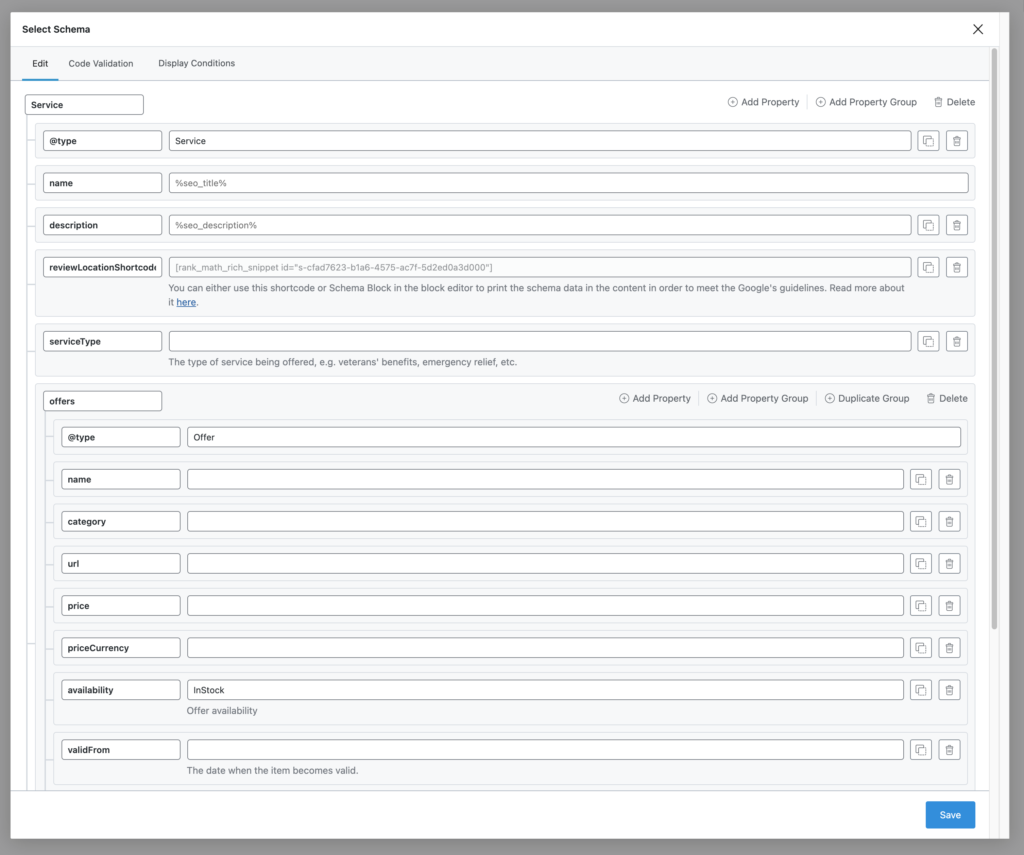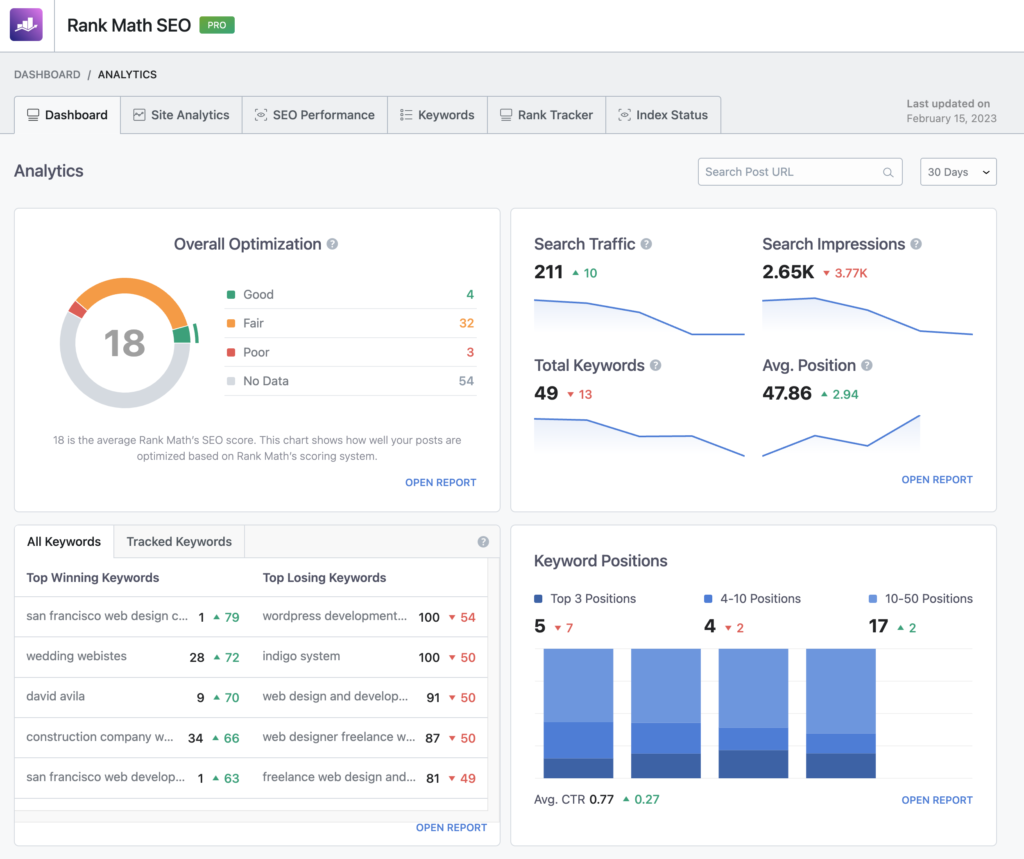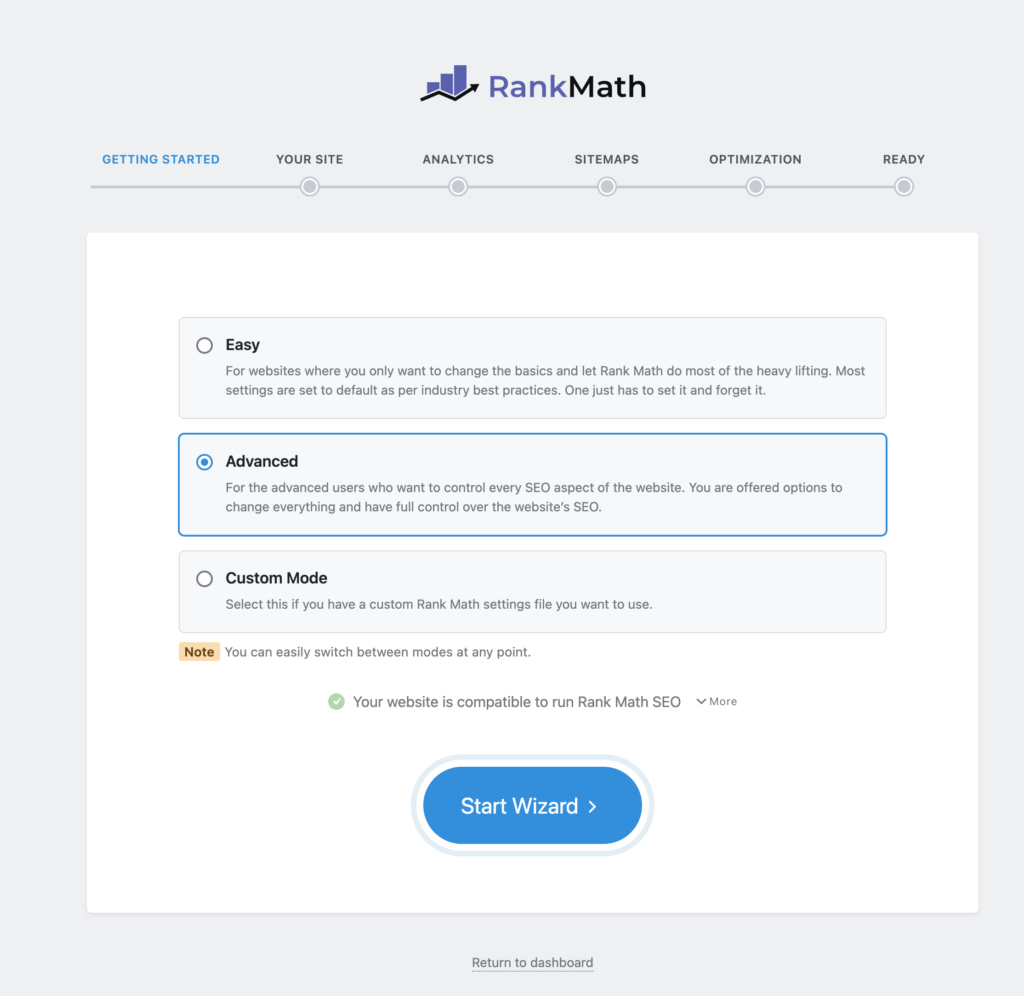Table of Contents
Introduction
I’ve recently made the switch from Yoast to Rank Math, and figured I would share why, and compare the two.
Yoast is the market leader in the WordPress SEO plugin space, but the Rank Math vs Yoast debate is really heating up (Rank Math is only a couple years old, whereas Yoast has been around since the beginning).
Truth be told, if you’re just looking for the basics pretty much any SEO plugin will do the trick: editing titles, schema, etc. And for 80% of sites this is probably okay.
But if you’re running a blog, or serious about your SEO, you need to be using Rank Math. They offer a lot more features, for less cost, and less bloat.
Quite frankly, the free version of Yoast is just riddled with ads and it starts to get annoying. The free version of Rank Math is better than Yoast premium.
What makes a good SEO plugin?
Before we jump into the Rank Math vs Yoast discussion, lets first talk about what makes a good SEO plugin in general.
The Basics
Regardless of which plugin you choose, a good SEO plugin will make the basics easy:
- Adding / editing focus keywords
- Adding / editing meta descriptions
- URL analysis (does the keyword appear in the URL)
- Link analysis (are you linking internally and externally)
- Title analysis (is your title simple)
- Keyword density
- Content analysis
These are the building blocks for all of SEO. If you get these figured out you’re well on your way.
Every SEO plugin I’ve tried easily displays all these metrics, and then outputs a score (or in Yoasts case a green light). Don’t get too caught up in this score.
It can be important at times, but for the most part just sticking to the basics will get you pretty far (IE write good content!!).
The Premium
With all the basics covered, both Rank Math and Yoast offer premium tiers of products. For Rank Math, the big premium features (to me, anyways) are: the schema generator, WooCommerce SEO PRO (if you’re using Woo), Image SEO, and the SEO blocks (table of contents, etc.). All of which we’ll talk about in more depth below.
Yoast premium is actually quite similar, but the big appeal to Yoast premium is none of the ads. And something about that just doesn’t sit right with me. Yoast premium also allows for redirects which can be really nice when migrating or changing permalink structures in any way.
On Page Ranking Factors
All that is to say that you want to make sure your on page ranking factors are optimized. After all, this is the only thing an SEO plugin can truly measure.
Okay, lets get into Rank Math vs Yoast specifically.
Rank Math vs Yoast – Speed
I am obsessed with speed. Everything I do, from a development point of view, is geared towards speed.
I like using as few plugins as possible to optimize my site speed.
Unfortunately, an SEO plugin is one that you absolutely must have. It’s one of only 6 that I use with the rest of my WordPress resources.
When it comes to speed, it’s no competition: Rank Math wins by a land slide.
When I run query monitor to find slow loading plugins, Yoast is always at the top of the list. Their plugin is bloated, overrun with ads, and very slow.
In fact, as of this writing Yoast has 87,200 lines of code and Rank Math only has 51,300. But where Rank Math really shines is in the plugin zip size at 2.85mb vs Yoast’s 7.18mb.
Part of the reason for this bloat from Yoast is that they constantly show you ads to upgrade to their premium, so much so that someone wrote an entirely separate plugin to hide them.
Rank Math vs Yoast – Schema
Rank Math makes it super easy to add schema to WordPress. They have 18 different types of schema out of the box. This makes it super simple to markup content without needing an entirely separate schema plugin.
On top of that you can add schema from other websites or create your own custom schema.
Yoast (or any other SEO plugin) doesn’t offer this in their free tier.

Rank Math vs Yoast – Image SEO
Rank Math makes it super easy to add alt attributes to images, which is a must for SEO.
Since WordPress core stopped automatically filling in the alt attribute when uploading images, this is a huge time saver.
Make sure you name your images with descriptive filenames before uploading to WordPress, and Rank Math will handle the rest.
Because Yoast doesn’t do this, you’ll have to go through and manually add ALT tags to all your images.
Truth be told, you should be doing this on every image upload anyways, but if you have a ton of images going through them all one at a time is a pain.
Rank Math vs Yoast – Analytics
Rank Math analytics make it easy to pull in Google Search Console data, and show you which keywords your site ranks for, and what the general trend is.
This does add a bit of extra code to your site, but all in all it’s nice to have a snapshot of your keyword data on your website dashboard.
Yoast doesn’t have this feature.

Rank Math vs Yoast – SEO Blocks
Both Rank Math and Yoast come with extra blocks for your site (if you’re using the Gutenberg WordPress editor).
In my opinion these blocks alone are what make upgrading to the premium versions worth it.
For Yoast they include: estimated reading time, how to markup, FAQ, related links, table of contents, and breadcrumbs.
For Rank Math they include: table of contents, FAQ, local business, how to, and schema mark up.
These are all different content types you can add to your pages and posts, depending on where you need them. If you use them, they come with proper markup right out of the box, and allow the plugins to analyze their contents (which isn’t always the case with third party blocks).
While these don’t have to come as blocks, and can be used in your theme instead (breadcrumbs, for example, should rarely be used as a block), they make content analysis easier for Yoast & Rank Math.
For all long form content, you should be using a table of contents, and having these blocks makes it really simple to add table of contents, and have it automatically link to the respective sections.
Rank Math vs Yoast – Content Analysis
Whenever you’re using the content analysis from these plugins, you should take them with a grain of salt. They’re a good starting point (and they mean well), but you should by no means take them as the end all be all of your content.
Rank Math gives much better, and more concrete, improvement suggestions when it comes to your content and also fits in with the Gutenberg editor a lot better than Yoast does.
Rank Math also makes it easy to analyze your Advanced Custom Fields content if you have any on the page. This is huge for me, as I use ACF in just about every client site.
Rank Math also gives a score out of 100, whereas Yoast really only gives you a bad, medium, or good score.
Finally, the newest feature of Rank Math is Content AI, which analyzes your posts and pages based on similar results in Google for the same keyword.
At the end of the day: just write good content!!!
Rank Math vs Yoast – Premium
Both plugins offer a premium version, but the biggest difference is the cost. Rank Math charges $59 for unlimited personal sites, and Yoast charges $99 per site.
If you’re just running one site this isn’t a huge difference, but you can see how it would add up quite quickly.
You can see a full breakdown of all the features here.
How to switch from Yoast
If you’re ready to take the plunge to Rank Math, and already use Yoast (or any other SEO plugin), thankfully it’s very easy to move all your data.
Rank Math comes with a Setup Wizard specifically designed to help you implement all your Yoast settings for every post and page, and even global settings.
They couldn’t make it any easier.

Other SEO Plugins
There are, of course, no shortage of other SEO plugins. Here are a couple others if you’re looking for a slightly less robust feature set:
- SEO Framework – If you’re looking for something very simple, with no frills SEO Framework is the one to use.
- All in one SEO – This was just bought by WP Beginner, and has over 3m users. A pretty good alternative to both Yoast & Rank Math.
There are too many others to list, but generally speaking these all have a majority of the market share for a reason.
Rank Math vs Yoast – Final Thoughts
I’m really hoping Yoast will improve its user experience in years to come, but for now Rank Math takes the cake for me. It’s simple to use, offers good suggestions, and fits with the workflow of Gutenberg a little bit better.
Combo that with more schema types, lighter weight code, and less obtrusive advertisements, and it’s a no brainer for me.


